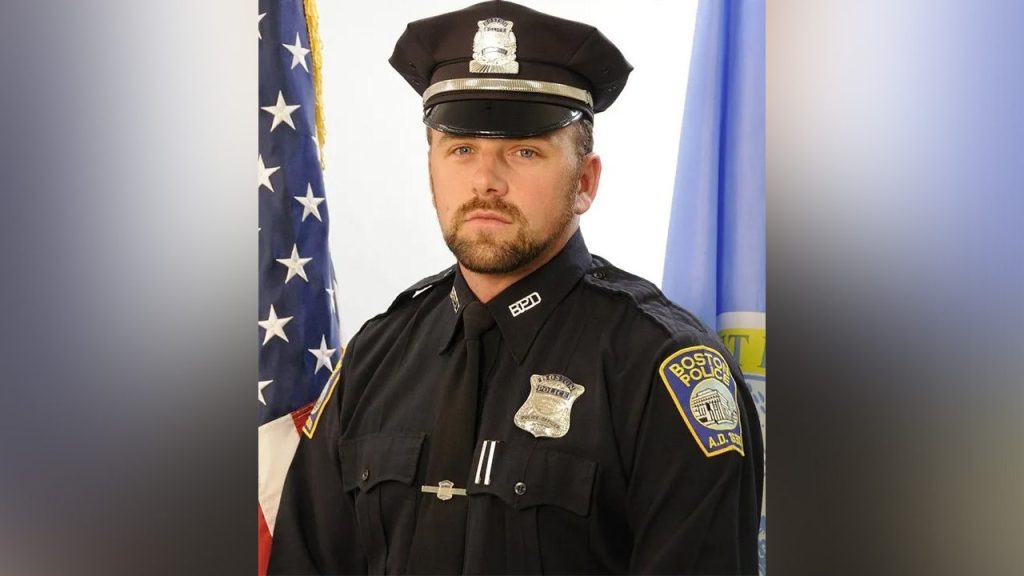Massachusetts Woman Loses Supreme Court Appeal in Deadly Collision Case
Karen Read, a 45-year-old Massachusetts woman, has lost her appeal to the Massachusetts Supreme Court, which sought to dismiss her case on the grounds of double jeopardy. The appeal came after her highly publicized murder trial ended in a hung jury. Read is now expected to stand trial for a second time in April on charges of second-degree murder and leaving the scene of a deadly accident. The case centers on the death of her boyfriend, Boston Police Officer John O’Keefe, who died from blunt force trauma to the head and hypothermia during a snowstorm in January in Canton, Massachusetts. Prosecutors allege that Read struck O’Keefe with her SUV after a drunken argument and fled the scene. Read, however, claims she left before O’Keefe was injured and has suggested that the incident was part of an elaborate cover-up involving other members of law enforcement.
The Tragic Incident and Competing Narratives
The incident occurred during a snowstorm in Canton, a town about 15 miles outside of Boston. Prosecutors argue that Read and O’Keefe were involved in a drunken fight, which escalated to the point where Read allegedly struck him with her SUV and left him to die in the snow. O’Keefe’s body was later found on the front lawn of the home of another Boston Police Officer, Brian Albert. Read, however, maintains that she left O’Keefe unharmed and that his death was the result of a conspiracy involving other police officers with whom O’Keefe had clashed. Her defense team has pointed to testimony from a key investigator, Massachusetts State Trooper Michael Proctor, whose text messages included derogatory remarks about Read, potentially undermining the credibility of the prosecution’s case.
The Legal Battle Over Double Jeopardy
After the first trial ended in a mistrial due to a hung jury, Read filed a motion to dismiss the case, arguing that retrial would violate the constitutional protection against double jeopardy. She claimed that the jury had only deadlocked on one of the three charges and that the other two charges should be dismissed. However, the Massachusetts Supreme Court rejected her argument, ruling that the jury had not reached a unanimous verdict on any of the charges. Justice Serge Georges Jr. wrote in the court’s 35-page decision that the jurors had explicitly stated during deliberations that they were “deeply divided” on all charges and could not reach an agreement. Georges emphasized that posttrial disclosures from jurors could not retroactively alter the trial’s outcome, as the jury’s final decision was to deadlock on all charges.
The Upcoming Retrial and Its Implications
With the Supreme Court’s decision, Read is now set to face a second trial in April. The prosecution is expected to be led by special assistant prosecutor Hank Brennan, a high-profile attorney who once represented notorious mobster James “Whitey” Bulger. Brennan has already begun efforts to obtain unpublished records from Massachusetts journalists who have interviewed Read, potentially seeking to use her own words against her in court. Legal experts have weighed in on the case, with many agreeing that the Supreme Court’s ruling was correct. Paul Mauro, a former NYPD inspector and attorney, noted that double jeopardy protections only apply when a verdict has been reached, not in the case of a mistrial. “This is settled law,” Mauro said. “This is not double jeopardy. Let’s get to a new trial and resolve this.”
Karen Read’s Defense and Allegations of a Cover-Up
Read has consistently maintained her innocence, claiming that she was framed by other members of law enforcement. She believes that O’Keefe’s death was orchestrated by officers he had fought with earlier in the night. After dropping O’Keefe off at Brian Albert’s home, Read claims she left the scene and had no further contact with him. She has pointed to the damning text messages from Trooper Proctor, which she argues demonstrate bias and unprofessionalism on the part of investigators. Her defense team has also highlighted the lack of direct evidence linking her to the fatal collision, as no witnesses reportedly saw her strike O’Keefe, and surveillance footage from the area is inconclusive.
Broader Implications and Public Reaction
The case has sparked significant public interest and debate, particularly given the involvement of law enforcement officers on both sides of the case. O’Keefe’s family has filed a wrongful death lawsuit against Read, adding another layer of complexity to the legal proceedings. Meanwhile, Read’s interviews with journalists have drawn scrutiny, with some questioning her credibility and others expressing sympathy for her situation. The upcoming trial is expected to draw widespread media attention, as it raises questions about police conduct, judicial fairness, and the challenges of retrying a high-profile case after a hung jury. For now, Read remains in the public eye, awaiting her second chance to clear her name in court.












